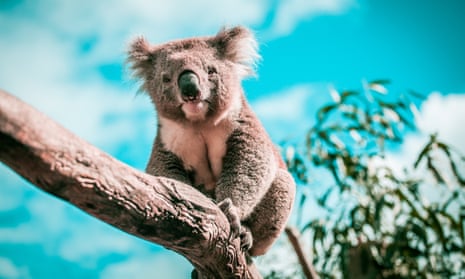Scientists believe they have found a new weapon in the battle to save endangered species: faecal transplants. They say that by transferring faeces from the gut of one animal to another they could boost the health and viability of endangered creatures. In particular, they believe the prospects of saving the koala could be boosted this way.
The idea of using faecal transplants as conservation weapons was highlighted this month at the American Society for Microbiology meeting in Atlanta, where scientists outlined experiments in which they used the technique to change microbes in the guts of koalas.
Microbes play a key role in digesting fibres in the animal’s diet of eucalyptus leaves – which come in two main varieties: manna gum and messmate.
“Messmate is clearly inferior to manna gum: it has less protein and more tannins,” said the project leader, Ben Moore of Western Sydney University.
However, some koalas eat only messmate and others only manna gum. Few eat both – and that is because manna-gum-eating koalas have different bacteria in their guts from those that ate messmate.
This raised the crucial question: could scientists change the microbes in a koala’s gut so that they could change the type of eucalyptus that the animal could consume? The answer was to carry out transplants of bacteria from the faeces of one set of koalas into the group that had different eucalyptus diets.
“We succeeded,” Moore told the Observer. The team found it was able to alter the koala’s gut bacteria from one type to the other.
The development is crucial because it should help the preservation not just of koalas – by aiding their ability to digest different types of eucalyptus – but should also help other endangered creatures. As the journal Nature reported, other researchers at the conference outlined work – again involving making changes in gut microbes – that could boost the fertility of southern white rhinoceros which do not reproduce well in captivity, a problem that is linked to their diets, it was found.

Comments (…)
Sign in or create your Guardian account to join the discussion